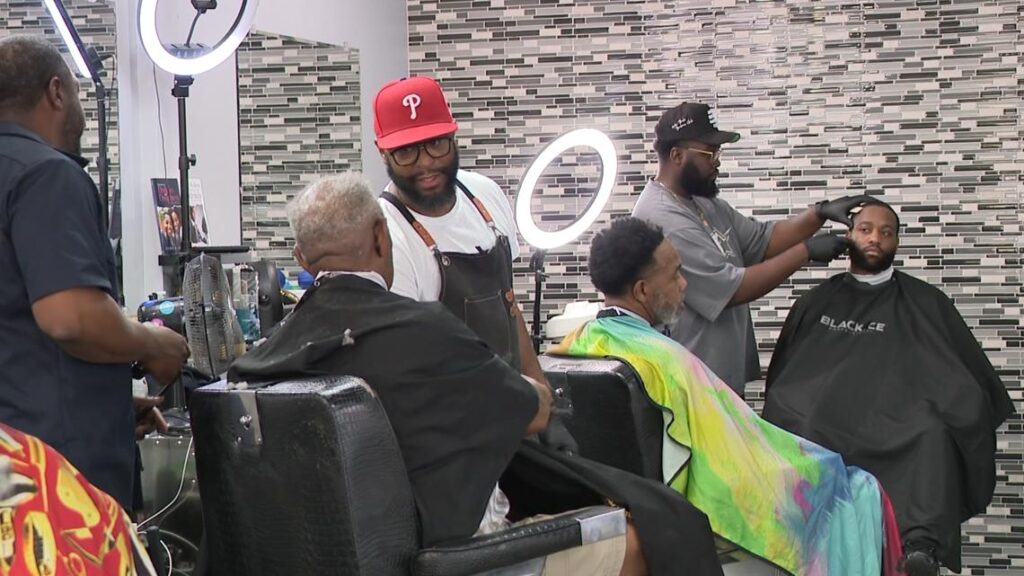Barbers at Blendsorial in Charlotte use their chairs to tackle mental health stigma among Black men.
CHARLOTTE, N.C. — Inside Blendsorial Barbershop in Charlotte, the conversations go far deeper than sports and weather. Owner Deion Caldwell and his business partners are using their chairs as platforms to address mental health stigma, particularly among Black men who are less likely to seek traditional therapy.
“I tell people it’s OK to not be OK. Some people think, ‘Man, if I get help, I’m a little crazy.’ No you’re not, you’re actually getting help,” Caldwell said.
The barbershop represents a growing movement as Mental Health Awareness Month concludes, with barbers across the country recognizing their unique position to provide emotional support in communities where mental health resources are often underutilized.
According to the National Alliance on Mental Health, 63% of African Americans believe a mental health condition is a sign of personal weakness — a statistic that highlights the cultural barriers many face in seeking help.
That’s where initiatives like the Confess Project come in. The coalition trains Black barbers nationwide to recognize mental health issues and provide support for men who might never set foot in a therapist’s office.
“I’ve seen it and witnessed it of how the barbershop has been a safe haven place for guys to come and get stuff off their chest because sometimes they feel like people don’t understand,” said Eric Cheek, another owner of Blendsorial Barbershop.
Cheek said the men in his chair often carry heavy emotional burdens.
“Responsibility has been a big one, just the load that they have to carry depending on the situation — children, wife, relationship, bills, work, no work,” he explained.
The approach has gained academic recognition. The Confess Project participated in a research study with Harvard University that found Black barbers play a vital role in addressing mental health challenges and serve as community gatekeepers.
For Caldwell, the impact goes beyond business.
“You can reach 100 people, you can talk to 100 people, but if you can change one life, that’s what matters most,” he said.
The Confess Project now includes more than 1,000 barbers across 40 cities, creating a network of community-based mental health support that meets people where they are — in the familiar, trusted environment of their neighborhood barbershop.
Contact Siobhan Riley at [email protected] and follow her on Facebook and X.
If you or a loved one are facing thoughts of suicide or self-harm, there is help readily available. You can call Suicide and Crisis Lifeline at 988 or chat with them online. There are also resources in North Carolina available here and in South Carolina available here.


